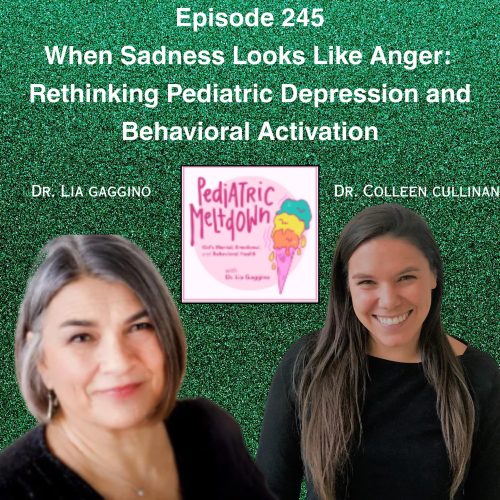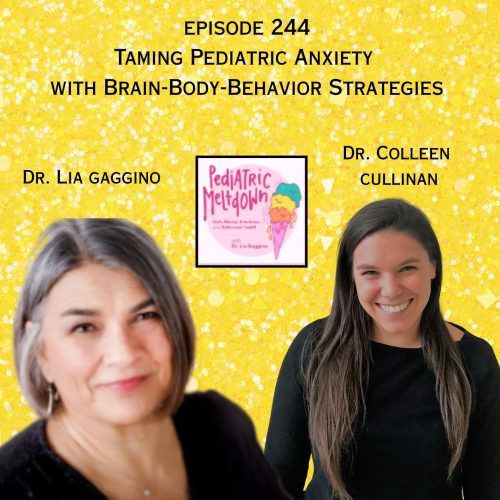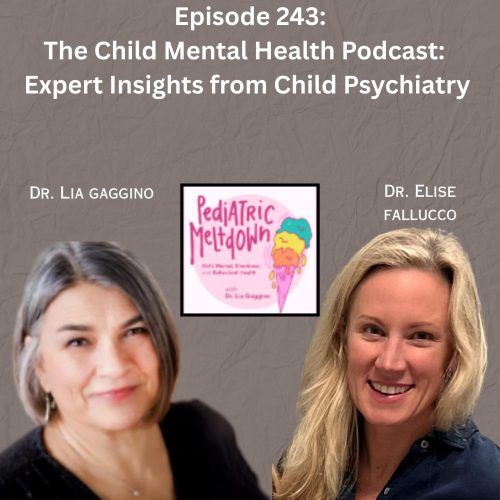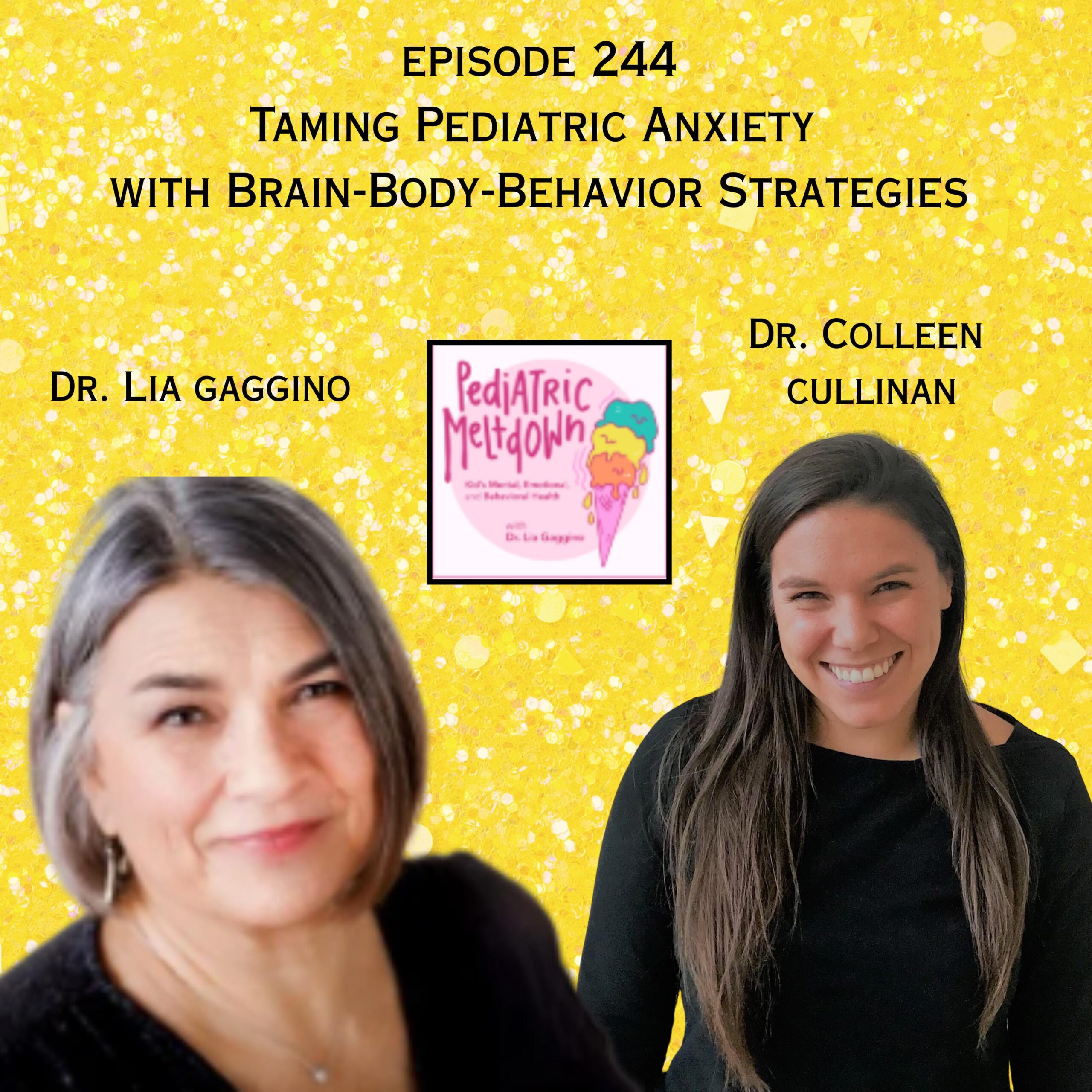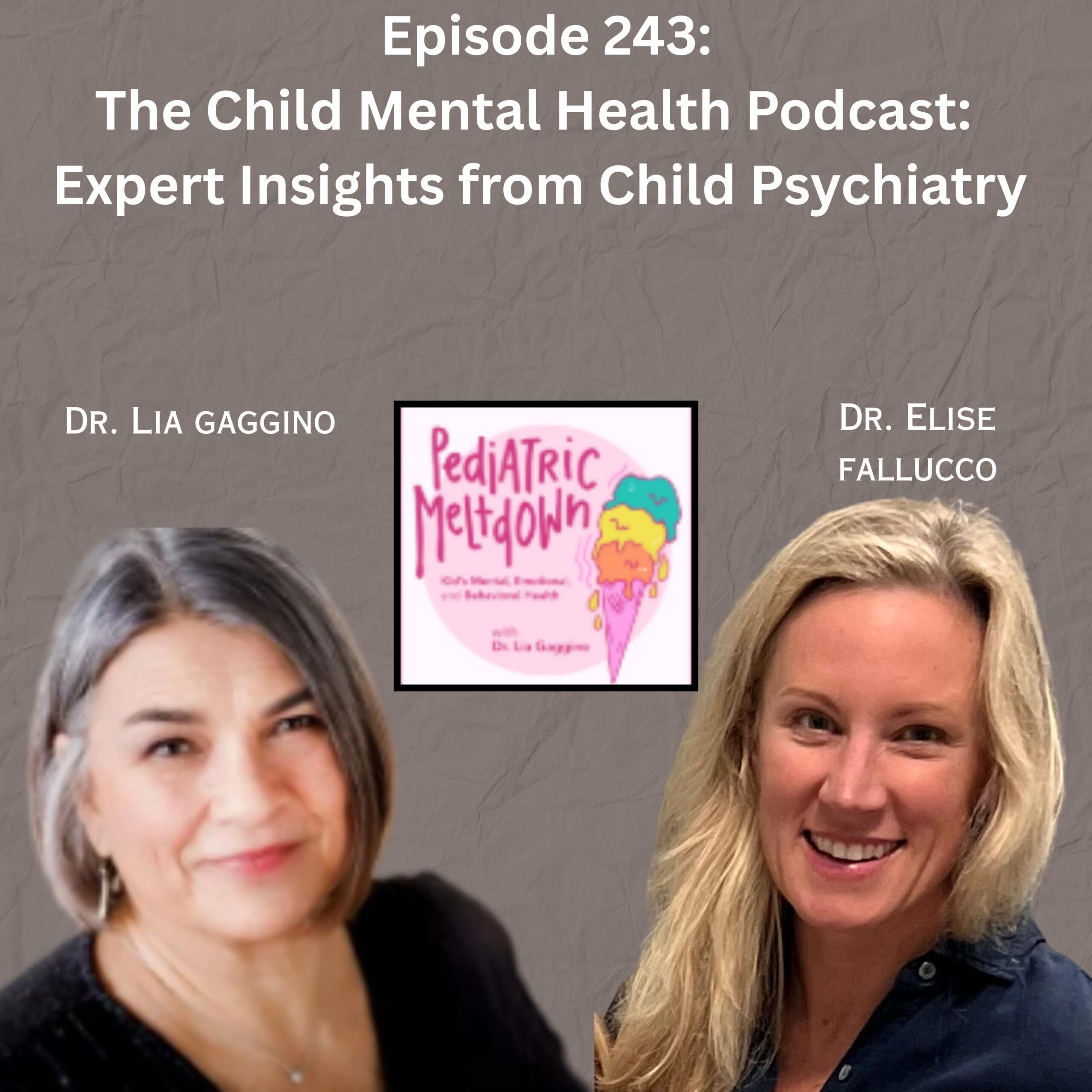When Sadness Looks Like Anger: Rethinking Pediatric Depression and Behavioral Activation
Are you struggling to support young patients—and maybe even yourself—with the emotional aftermath of our “new normal”?
In this compelling episode of Pediatric Meltdown, Dr. Colleen Cullinan returns to unpack the reality of pediatric depression in a world rocked by uncertainty. Discover why traditional approaches, like focusing solely on symptoms, may actually miss the bigger picture when kids are faced with unprecedented stress.
Learn how changing the narrative, adopting techniques such as Acceptance and Commitment Therapy (ACT), and making small, values-driven changes can help children—and parents—find hope, function, and connection again. This episode isn’t just about treating depression; it’s about transforming how we relate to struggle and building resilience against the tide of ongoing adversity.
Tune in for real stories, actionable tools, and a refreshing reminder: even the heaviest feelings can be given a name, a shape, and ultimately, a little less power.
[00:00 – 08:40] The Impact: Symptom Overload, and Functional Impairment
- The pandemic has significantly amplified youth mental health issues, leading to increased rates and severity of pediatric depression and anxiety.
- Symptom checklists like the PHQ-9 now reveal almost universal distress—so much so that a “normal” score is rare.
- Chronic uncertainty and prolonged stress (for both kids and adults) exacerbate feelings of hopelessness, helplessness, and irritability.
- The primary care challenge: shifting from symptom identification to understanding the real-life impact on activities, relationships, and overall well-being.
[08:41 – 28:29] Rethinking Depression in Pediatrics: Connection, and Therapy Approaches
- Connection—not just checking PHQ-9 scores—is a critical protective factor for youth mental health and should be the heart of clinical encounters.
- Traditional Cognitive Behavioral Therapy (CBT) and newer Acceptance and Commitment Therapy (ACT) are compared — with ACT focusing on accepting thoughts and changing relationships with them, not just “fixing” or disputing them.
- Dr. Cullinan explains how ACT techniques, including physicalizing and naming despair, help kids distance from and better manage their feelings.
- The “beach ball” metaphor illustrates how fighting negative thoughts can cause you to miss life’s joys—and how letting them coexist with living can restore function and hope.
[28:30 -58:59] Strategies: Playful Experiments, Values-Based Goals, Motivational Tools
- Practical examples include using humor, metaphor, and even quick physical challenges (like the “lemon” exercise) to help kids gain distance from distressing thoughts.
- Naming depressive feelings or thoughts (e.g., “pathetic,” “Bob”) can help externalize and reduce their influence, making them easier to talk about and manage.
- Motivational Interviewing is highlighted as a powerful tool—but only if it genuinely centers each child’s unique values and interests, not the provider’s agenda.
- Avoidance, not just the presence of sadness or fear, is flagged as the true engine of suffering; the focus shifts to acceptance and gentle behavioral activation.
[59:00-1:06:47] Building Resilience: Safety, Nurture, New Frames, and Practical Pearls
- Children’s beliefs and “frames” about themselves and the world are shaped by repeated messages—caregivers can help reframe these with new, nurturing narratives.
- Safe, stable, nurturing relationships offer the strongest protection and resilience against depression and trauma, as explored through frameworks like toxic stress and child transformation health.
- Providers can make meaningful impact in just minutes with new language, metaphors, and reframing exercises—even in a busy primary care setting.
[1:06:48 – 1:14:36] Dr. G’s TakeAways
Additional Resources Mentioned
- The Thriving Adolescent
- Stop Avoiding Stuff
- The Mindful Self-Compassion Workbook
- Thriving Adolescent
- Association for Contextual Behavioral Science
- Praxis – ACT Training
- Caring for Children in Foster and Kinship Care: Keeping a Trauma-Informed focus with Moira Szilagyi
- The Art of Conscious Parenting with Dr. Robert Saul
- Toxic Stress: Safe, Stable, Nurturing Relationships are the Antidote
Here are some more episodes you may like
https://pediatricmeltdown.com/episodes
- Raising Good Citizens Through Conscious Parenting
- Immigrant Children and Families
- Preventing Youth Suicide
- The Art of Medicine
Tweetable Quotes:
“This uncertainty piece is the worst. We as humans are creatures that crave certainty. We’ll invent certainty where we can. Like, that’s what the human brain has evolved to do is to make uncertain things certain.”… Dr. Colleen Cullinan on how your brain operates.
“We know that there are these things that are in play all the time. We also know that the way the human body and brain works, it’s impossible or it just has never been successful for people to just snap on and off their feelings.”… Dr. Colleen Cullinan on emotional conflict
**TRANSCRIPT AVAILABLE UPON REQUEST**
SUBSCRIBE & LEAVE A FIVE-STAR REVIEW and share this podcast to other growing entrepreneurs!
Get weekly tips on how to create more money and meaning doing work you love and be one of the many growing entrepreneurs in our community. Connect with me on LinkedIn; https://www.linkedin.com/groups/12656341/ or on Instagram or our website at www.lifeaftercorporatepodcast.com .



